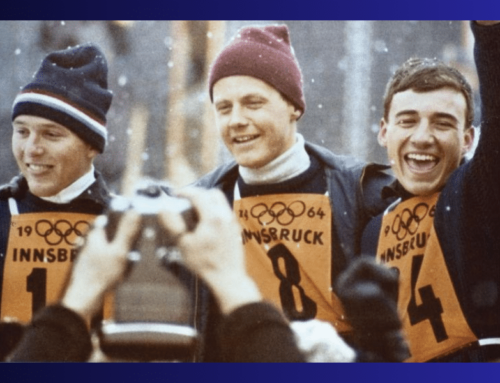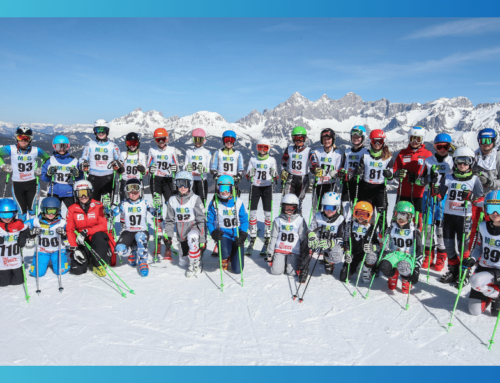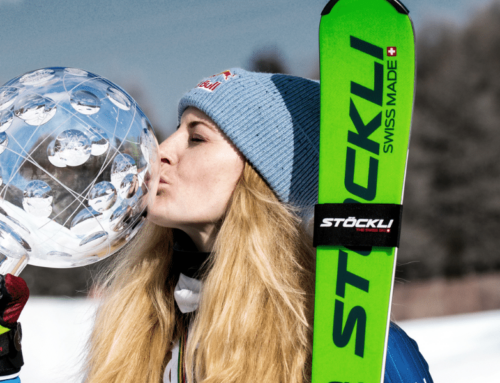Johno McBride’s Hall of Fame Journey: Leading U.S. and Canadian Ski Teams to Historic Heights
Photo Credit: Holly Cole
The Aspen native led the U.S. and Canadian men’s speed teams to their best results ever, but his biggest rewards have not necessarily been the wins
VAIL, Colo. – Johno McBride describes himself as “obsessed” with coaching. The Aspen Valley Ski Coach (AVSC) and former U.S. Ski Team coach used his Colorado Snowsports Hall of Fame induction speech last weekend to outline the benchmarks of successful coaching.
Growing up in Aspen, he started his racing career with the Aspen Valley Ski Club (AVSC) before joining the U.S. Development Team and racing for the University of Vermont. McBride began coaching in 1989. He moved on to coach for the U.S. Team in 1995, becoming head men’s speed coach in 2002.
McBride coached Bode Miller and Daron Rahlves through the high points of their careers, Miller to two World Cup overall globes and two Olympic medals and Rahlves to 12 World Cup victories and 28 podiums. He also led Team Canada through one of its most impressive performance cycles between 2010 and 2014, with 20 World Cup podiums, Erik Guay’s downhill gold medal at the 2011 World Championships and Jan Hudec’s super-G bronze medal in the 2014 Olympics.
When asked to pinpoint the most rewarding moments of his coaching career, McBride says there are too many to name.
Click on images to enlarge
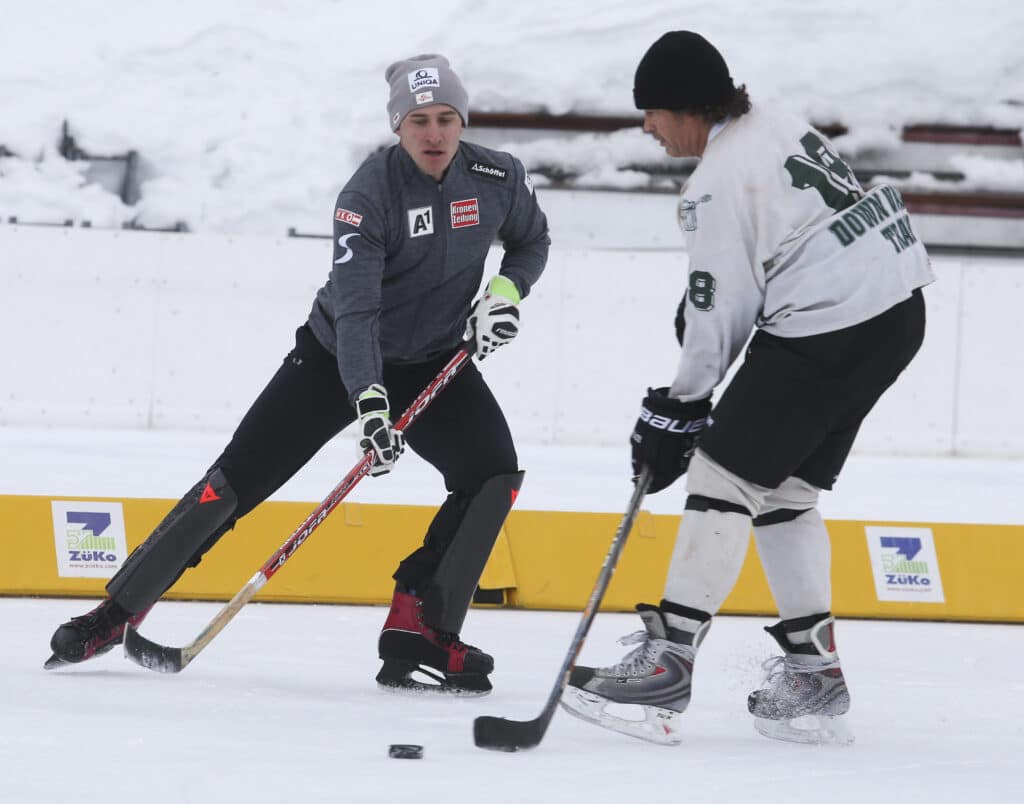
Coaching highlights
“The one thing I’ll tell you is that some of the most memorable, standout moments weren’t when people were winning,” he says. “I was really lucky to have standout moments with many individual athletes I worked with. There weren’t too many of my gang who didn’t have a breakthrough race or a breakthrough season. Those are the moments, when you see that happen and see an athlete realize that they can be a competitor instead of a participant. That as a coach is rewarding. That goes down to the little guys, too.”
Among the big guys, McBride recalls a special moment at the 2005 World Cup final super-G race when Miller and Rahlves had a lot on the line. McBride was designated course setter for the race and put a set together that somehow suited both athletes’ highly varied styles.
“Bode needed to win the super-G to win the super-G title. Daron was in the hunt to be in the top three for the super-G, but he had to win to do that,” McBride recalls. “I set the course and those guys tied for the win. That doesn’t happen often. I talked to them about what to do. Bode won the top of the course. Daron won the bottom. In reality, it was luck more than anything else.”
Nobody can deny that talent also played a significant role in moments like this, from the athletes to the coach. In McBride’s Hall of Fame induction video, Miller and Rahlves describe their coach as “the Pied Piper of skiing,” Miller remarking on his former coach’s unique “ability to connect with every personality type.”
McBride had not seen the video until last Saturday’s Hall of Fame induction ceremony and said this was “quite a compliment.”
“It wasn’t just me. I had an amazing staff. We were very transparent. Everyone knew each other’s strengths and weaknesses. When we decided to do something, everyone joined in. Once we came up with plans, whether it was a training block or conditioning block before races, everyone dug their heels in,” McBride says.
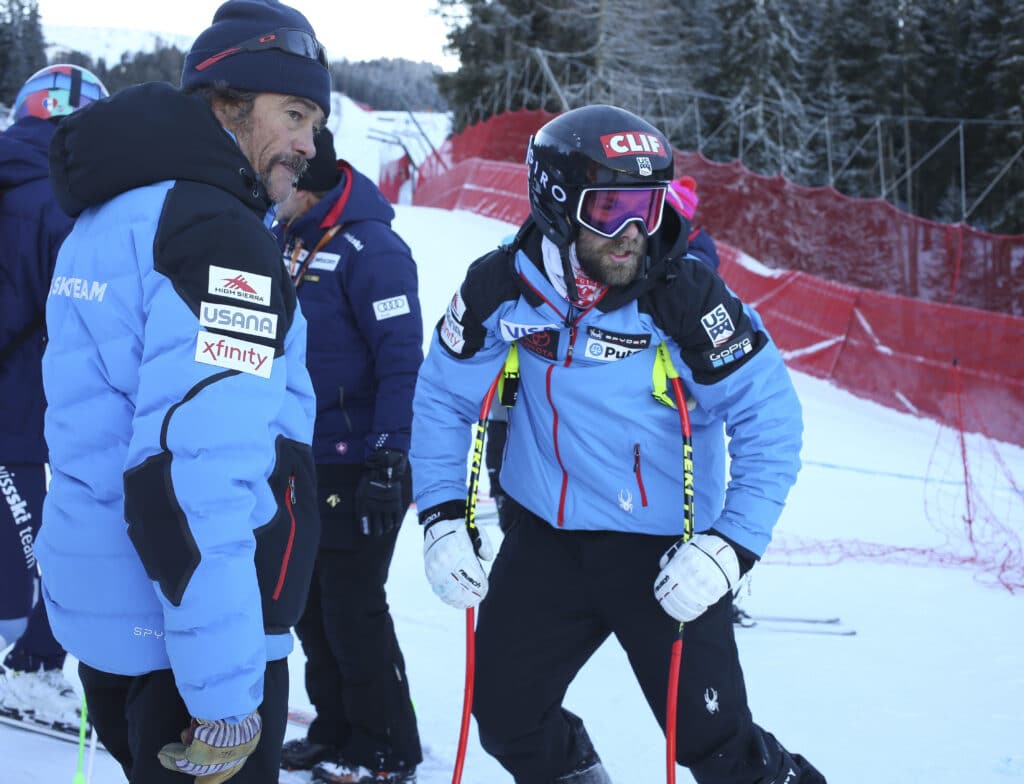
Coaching 101
In his speech, McBride discussed his approach as head coach. He described surrounding himself with the right people and leveling the playing field as the core tenant to successful coaching.
“I had amazing coaches around me that pushed me to a higher level,” he said in his speech. “We shared in all the duties. I never made a hierarchy when I worked at the national team level and I was happy to drive the cargo van or run the timer. I think that shared responsibility of duties empowered everyone.”
The second ingredient he named in the recipe for success was helping athletes realize how supporting one another “would ultimately help everyone reach their potential.”
“In an individual sport where you’re trying to beat your teammate, it takes perspective and maturity to support and celebrate your teammates,” McBride said. “Ultimately, this mutual support led to a higher level of accountability for everyone and success as well.”
In addition to proving his worth as a highly impactful coach, McBride has also etched his mark in the sport as a guy with a great sense of humor, constantly playing pranks on his athletes and getting pranked in return. He says this is another benchmark of a successful coaching relationship.
“We enjoyed the process and laughed a lot. We proved you can be professional, work hard, have a good time, laugh at each other and laugh at yourself and still kick ass,” he said. “In the many years I was in Europe, I think that particular piece of the puzzle used to drive our opponents crazy. They thought we were a bunch of jokers, but when it came time to compete, we’d be ready.”
Continuing with young skiers
McBride’s three children joined him on the Hall of Fame stage. While stepping down as Alpine Director for AVSC, a post he held for the last five years and from 2014 to 2017, he is looking forward to continuing as a coach, focusing on the U12 skiers, coaching hockey, and spending more time with his family
“I’ve coached that level before and had a great time,” he says. “It’s a wonderful age to instill good habits and technical skills. It’s kind of a transitional period. Kids who have a good year and enjoy their process know that training makes a difference. They can see mini successes. It can be pivotal.”
As for earning his place in the Hall of Fame, McBride says it was never on his radar
“It’s nothing that I ever thought would happen,” he says. “I’ve always been lucky in following my dreams and passions. I’ve obviously been a little obsessed with coaching, but a lot of it depends on the group you’re around. I feel extremely fortunate for the people I got to work with. You never know who you’re going to get. We figured out we could help each other. That was really special. Everyone raised the bar.”
